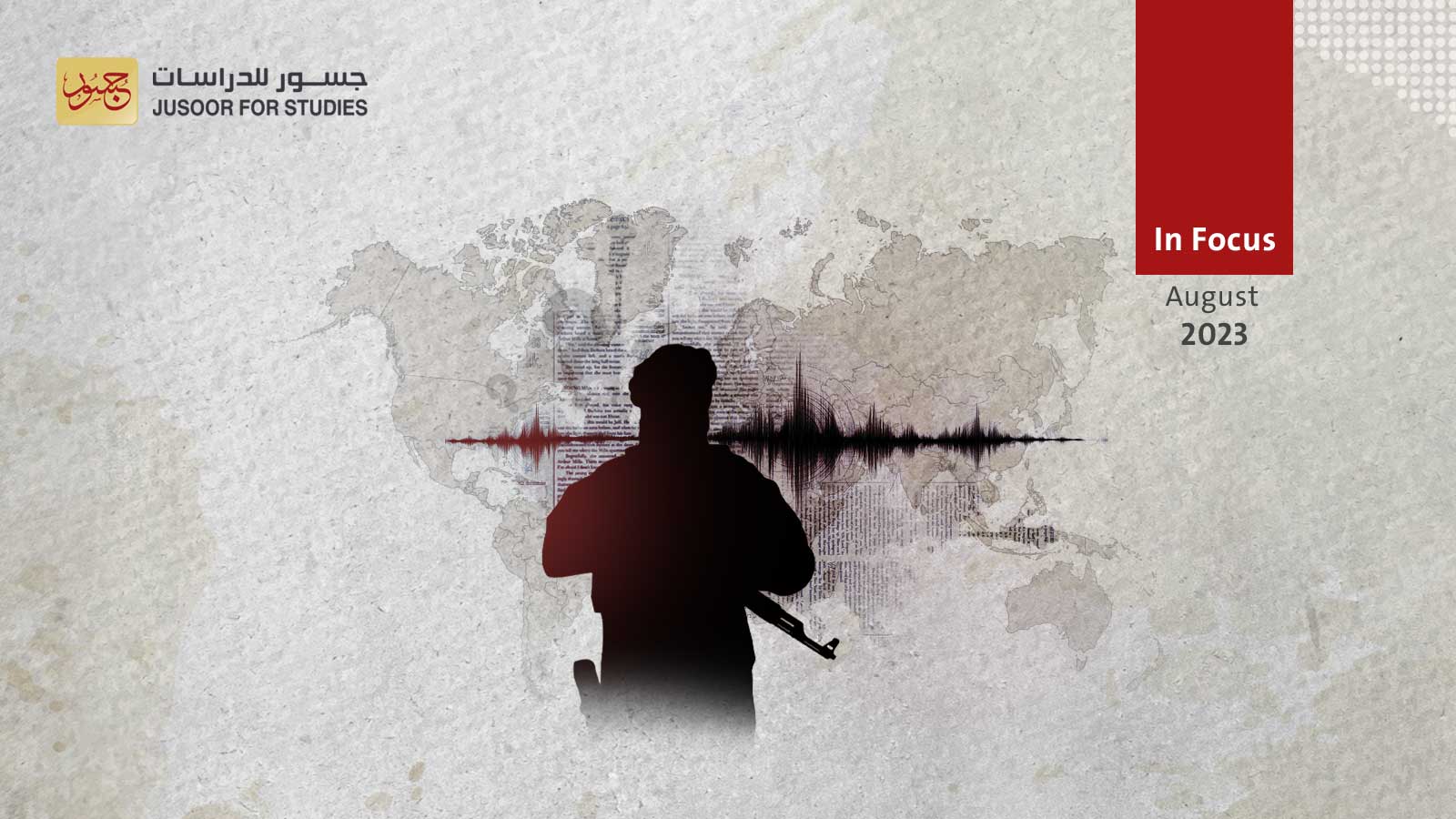ISIS Directs Multiple Messages Targeting Turkey and Hayat Tahrir al-Sham
On August 3, 2023, ISIS officially confirmed the death of its leader , Abu al-Hussein al-Husseini al-Quraishi. This came in a late audio statement by the group’s spokesman, Abu Hudhayfah Al-Ansari titled "Rejoice in the bargain which you have concluded" This came 4 months after the Turkey’s National Intelligence Organization (MIT) had previously announced that it was able to neutralize al-Qurashi in an “intelligence operation.”
The delay in the announcement is likely related to the appointment of a new successor to the organization, as well as the core nucleus formed by the Shura Council, especially after the killing of the official responsible for coordination between the distant provinces and the Shura Council, Abu Sarah Al-Iraqi (Abdul Raouf Al-Muhajir), in northern rural Idlib at the beginning of March 2023, which led to the disappearance of the council members.
The spokesperson's audio statement lasted 30 minutes, focusing on six main issues: the appointment of a new leader, acknowledging the death of their previous leader, revealing the relationship of HTS to his death, the objectives of the organization, the fate of its detained members and their families, let aside the threats launched by the spokesperson against the United States .
ISIS claimed that countries are incapable of understanding the nature and structure of the organization, and that they cannot dismantle or terminate it simply by killing an individual, even if that individual is its leader."
ISIS has long claimed that the countries fighting against it are unable to understand the nature of the organization's operations and its structure. Moreover, they cannot dismantle or end it merely by killing a member of that group, even if this member is its leader; given that ideology and a sense of being oppressed are the group’s main drivers
The organization denied Turkey's official narrative, as the latter announced that it assassinated al-Qurashi on April 29, 2023, in a security operation in the countryside of Afrin, north of Aleppo. ISIS confirmed that Al-Hashimi was killed in a clash with HTS, which is according to ISIS is an "apostate" group. The latter also captured Hamza Al-Muhajir, the former official spokesperson of ISIS.
The organization's rhetoric suggests a potential intention to escalate the operations of its affiliated cells in areas controlled by Hay'at Tahrir al-Sham. Previously, several of its leaders moved safely within these regions via various routes. However, the recent death of most of them - such as Abu Sarah Al-Iraqi, the official responsible for coordination between the provinces, and organization leaders including Abu Al-Hussein Al-Hashimi, Abu Ibrahim Al-Qurashi, and Abu Bakr Al-Baghdadi - will likely negatively impact the security situation in the Idlib areas.
The rhetoric of the Islamic State indicates a potential inclination towards escalating operations of its cells in areas controlled by HTS. While many of ISIS leaders were previously able to move within these areas with relative safety using various routes, the recent killing of most of them - such as Abi Sarah al-Iraqi, responsible for coordination between provinces, and organization leaders like Abu al-Hussein al-Hashimi, Abu Ibrahim al-Qurashi, and Abu Bakr al-Baghdadi - will likely have negative repercussions on the security situation in the regions of Idlib.
The escalation of assassination attempts against the security and military leaders of HTS, as well as influential economic figures within it could be seen as a reflection of this threat. It's possible that an understanding might emerge between the cells of ISIS and remnants of groups or former members of the Guardians of Religion Organization (Hurras Al-Din), as well as individuals who hold grievances against HTS, aiming to compromise its security.
The new leader of the organization is Abu Hafs al-Qurashi. His own characteristics mentioned by the spokesperson of the group indicate that he is one of the group’s veterans as a student who learned from al-Zarqawi and he (Abu Hafs al-Qurashi), is one of the group that founded the organization in its second phase between 2006 and 2008—at least. This confirms Abu Hafs al-Qurashi’s affiliation with the first rank of the remaining leaders within the group. This grants him additional legitimacy over his competitors (if any) within the organization. It's expected that pledges of allegiance to him will continue to emerge - as members of the organization in several countries like Iraq and Mali have done so- reinforcing his presence. Despite the broader members' unfamiliarity with him, the spokesperson relied on his combat experiences against the U.S. forces as a justification for concealing his real name and opting for a newly introduced nom de guerre.
Finally, the organization's request for its supporters to pledge allegiance to its new leader comes within the context of its insistence on continuing with the same ideological background and its military and security approach. This is especially emphasized with the organization's leadership focusing on freeing its imprisoned members by any means necessary. It is expected that there will soon be an official statement from the new leader, in which he will outline his plans and instructions for his members, and the general strategy he will adhere to.








